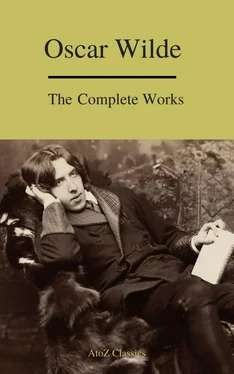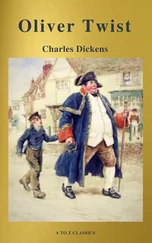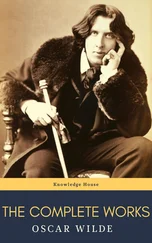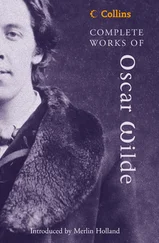On reaching the library he found that it was just after five o’clock, and that the tea had been already brought up. On a little table of dark perfumed wood thickly incrusted with nacre, a present from his guardian’s wife, Lady Radley, who had spent the preceding winter in Cairo, was lying a note from Lord Henry, and beside it was a book bound in yellow paper, the cover slightly torn and the edges soiled. A copy of the third edition of the St. James’s Gazette had been placed on the tea-tray. It was evident that Victor had returned. He wondered if he had met the men in the hall as they were leaving the house and had wormed out of them what they had been doing. He would be sure to miss the picture,—had no doubt missed it already, while he had been laying the tea-things. The screen had not been replaced, and the blank space on the wall was visible. Perhaps some night he might find him creeping up-stairs and trying to force the door of the room. It was a horrible thing to have a spy in one’s house. He had heard of rich men who had been blackmailed all their lives by some servant who had read a letter, or overheard a conversation, or picked up a card with an address, or found beneath a pillow a withered flower or a bit of crumpled lace.
He sighed, and, having poured himself out some tea, opened Lord Henry’s note. It was simply to say that he sent him round the evening paper, and a book that might interest him, and that he would be at the club at eight-fifteen. He opened the St. James’s languidly, and looked through it. A red pencil-mark on the fifth page caught his eye. He read the following paragraph:
“ Inquest on an Actress .—An inquest was held this morning at the Bell Tavern, Hoxton Road, by Mr. Danby, the District Coroner, on the body of Sibyl Vane, a young actress recently engaged at the Royal Theatre, Holborn. A verdict of death by misadventure was returned. Considerable sympathy was expressed for the mother of the deceased, who was greatly affected during the giving of her own evidence, and that of Dr. Birrell, who had made the post-mortem examination of the deceased.”
He frowned slightly, and, tearing the paper in two, went across the room and flung the pieces into a gilt basket. How ugly it all was! And how horribly real ugliness made things! He felt a little annoyed with Lord Henry for having sent him the account. And it was certainly stupid of him to have marked it with red pencil. Victor might have read it. The man knew more than enough English for that.
Perhaps he had read it, and had begun to suspect something. And, yet, what did it matter? What had Dorian Gray to do with Sibyl Vane’s death? There was nothing to fear. Dorian Gray had not killed her.
His eye fell on the yellow book that Lord Henry had sent him. What was it, he wondered. He went towards the little pearl-colored octagonal stand, that had always looked to him like the work of some ·64· strange Egyptian bees who wrought in silver, and took the volume up. He flung himself into an arm-chair, and began to turn over the leaves. After a few minutes, he became absorbed. It was the strangest book he had ever read. It seemed to him that in exquisite raiment, and to the delicate sound of flutes, the sins of the world were passing in dumb show before him. Things that he had dimly dreamed of were suddenly made real to him. Things of which he had never dreamed were gradually revealed.
It was a novel without a plot, and with only one character, being, indeed, simply a psychological study of a certain young Parisian, who spent his life trying to realize in the nineteenth century all the passions and modes of thought that belonged to every century except his own, and to sum up, as it were, in himself the various moods through which the world-spirit had ever passed, loving for their mere artificiality those renunciations that men have unwisely called virtue, as much as those natural rebellions that wise men still call sin. The style in which it was written was that curious jewelled style, vivid and obscure at once, full of argot and of archaisms, of technical expressions and of elaborate paraphrases, that characterizes the work of some of the finest artists of the French school of Décadents . There were in it metaphors as monstrous as orchids, and as evil in color. The life of the senses was described in the terms of mystical philosophy. One hardly knew at times whether one was reading the spiritual ecstasies of some mediæval saint or the morbid confessions of a modern sinner. It was a poisonous book. The heavy odor of incense seemed to cling about its pages and to trouble the brain. The mere cadence of the sentences, the subtle monotony of their music, so full as it was of complex refrains and movements elaborately repeated, produced in the mind of the lad, as he passed from chapter to chapter, a form of revery, a malady of dreaming, that made him unconscious of the falling day and the creeping shadows.
Cloudless, and pierced by one solitary star, a copper-green sky gleamed through the windows. He read on by its wan light till he could read no more. Then, after his valet had reminded him several times of the lateness of the hour, he got up, and, going into the next room, placed the book on the little Florentine table that always stood at his bedside, and began to dress for dinner.
It was almost nine o’clock before he reached the club, where he found Lord Henry sitting alone, in the morning-room, looking very bored.
“I am so sorry, Harry,” he cried, “but really it is entirely your fault. That book you sent me so fascinated me that I forgot what the time was.”
“I thought you would like it,” replied his host, rising from his chair.
“I didn’t say I liked it, Harry. I said it fascinated me. There is a great difference.”
“Ah, if you have discovered that, you have discovered a great deal,” murmured Lord Henry, with his curious smile. “Come, let us go in to dinner. It is dreadfully late, and I am afraid the champagne will be too much iced.”
For years , Dorian Gray could not free himself from the memory of this book. Or perhaps it would be more accurate to say that he never sought to free himself from it. He procured from Paris no less than five large-paper copies of the first edition, and had them bound in different colors, so that they might suit his various moods and the changing fancies of a nature over which he seemed, at times, to have almost entirely lost control. The hero, the wonderful young Parisian, in whom the romantic temperament and the scientific temperament were so strangely blended, became to him a kind of prefiguring type of himself. And, indeed, the whole book seemed to him to contain the story of his own life, written before he had lived it.
In one point he was more fortunate than the book’s fantastic hero. He never knew—never, indeed, had any cause to know—that somewhat grotesque dread of mirrors, and polished metal surfaces, and still water, which came upon the young Parisian so early in his life, and was occasioned by the sudden decay of a beauty that had once, apparently, been so remarkable. It was with an almost cruel joy—and perhaps in nearly every joy, as certainly in every pleasure, cruelty has its place—that he used to read the latter part of the book, with its really tragic, if somewhat over-emphasized, account of the sorrow and despair of one who had himself lost what in others, and in the world, he had most valued.
He, at any rate, had no cause to fear that. The boyish beauty that had so fascinated Basil Hallward, and many others besides him, seemed never to leave him. Even those who had heard the most evil things against him (and from time to time strange rumors about his mode of life crept through London and became the chatter of the clubs) could not believe anything to his dishonor when they saw him. He had always the look of one who had kept himself unspotted from the world. Men who talked grossly became silent when Dorian Gray entered the room. There was something in the purity of his face that rebuked them. His mere presence seemed to recall to them the innocence that they had tarnished. They wondered how one so charming and graceful as he was could have escaped the stain of an age that was at once sordid and sensuous.
Читать дальше












